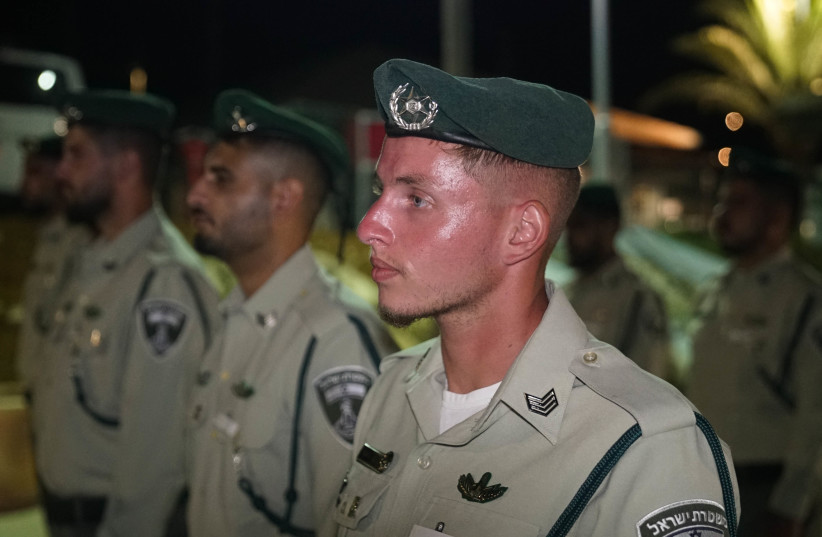Israel's Border Police established its new Rural Attack Unit in a ceremony on Tuesday, according to the Border Police Spokesperson's Unit.
The new unit consists of 67 IDF and Border Police soldiers who will be stationed in the north of Israel in the agricultural areas. The soldiers were trained in ambushing, lookouts, interceptions and mobile fighting. These skills will reportedly give the ability to effectively fight in the northern agricultural areas.
The ceremony was attended by Border Police Commander Asst.-Ch. Amir Cohen, North Command Commander Asst.-Ch. Shimon Lavi, Northern Border Police Commander Golan Sharon, the heads of councils in the north and the new unit's soldiers.
What is the objective of Israel's Rural Attack Unit?
The new unit joins other specialized units for fighting in the rural areas of the north that deal with intelligence, investigations and other policing units that are intended to help fight crime.

"The protection and defense of the business owners in the rural spaces and fighting agricultural crime has a first-degree national value," said Cohen at the ceremony. "The farmers are a symbol of Zionism and settlement, and they produce our bread from the soil with the sweat on their brows, and we have the responsibility to protect them and their produce.
"The establishment of the first Rural Attack Unit here in the north is an additional tier in strengthening the personal safety of the rural citizens. I expect this unit to be expert in its domain, show initiative, be combative and act cunningly against the crimes in agriculture."
Assistant-Chief Amir Cohen
"In the last few months, you underwent professional training in which you were exposed to fighting skills that you will need in this unit and you were trained to be fully fledged fighters in regards to operation and values," said Sharoni. "At the end of the process, the longed-for moment has come where the Rural Attack Unit rolls up its sleeves and prepares to fill its unique tasks.
"The establishment of the unit is part of a meaningful process of learning and development toward a changing reality in the rural sector."
